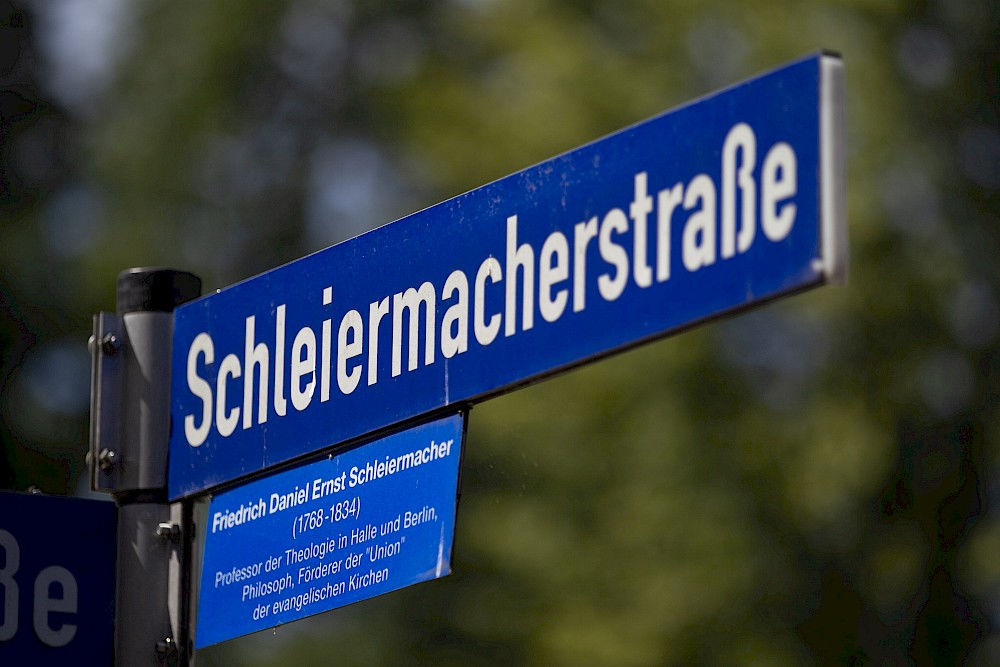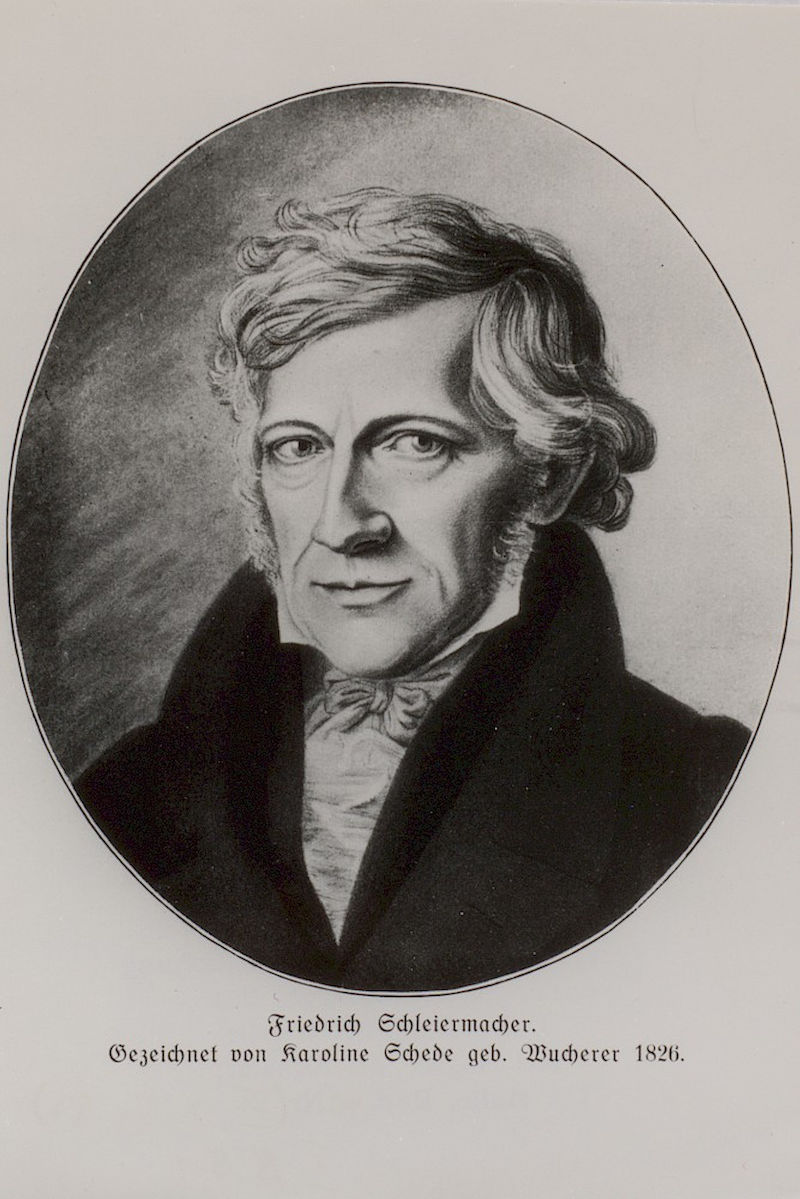Big Names: Friedrich Schleiermacher

The setting is as charming as the time around it: An extended family spends Christmas Eve together with friends in a cosy home. There’s lots of conversation, and the subsequent relaxation sparks a muse for deeper discussions. This is the plot of “Die Weihnachtsfeier”, a story written by Friedrich Daniel Ernst Schleiermacher shortly before the festive season in 1805.
This is where the author presents his romantic conception of religion as it were. Theologians have often read and interpreted his work. The most overlooked aspect is its setting in the cosy Giebichenstein area of Halle, which was just a small village outside the actual city back then. The story takes place in the family home of the composer Johann Friedrich Reichardt, where Schleiermacher was often a guest.
Schleiermacher, the scholar with the finely cut facial features, generally enjoyed a tremendous social life in Halle. Reichardt wasn’t the only person to welcome great thinkers, poets and musicians of the Romantic era into his home; inspiring parties were also regularly held in Schleiermacher’s house by the market. It was 1804 when he moved in to the building at Grosse Märkerstrasse 21, which is now one of the oldest houses in Halle. This is where Schleiermacher would arrange weekly meetings with students to hold discussions and readings.
Both the Prussian state government and the University of Halle had apparently been aware of his prominence at all times. This becomes even clearer when you look at the employment records in the university archives – it’s plain to see they really wanted the theologian in Halle. He was described as “a good pulpit orator” and recommended for his “thorough scholarship and diligence shown to date”, as expressed in an official letter of the Prussian state government in Potsdam. And his call to the university was arranged by none other than King Friedrich Wilhelm III.
Their efforts to attract Schleiermacher are highlighted even more by the fact they offered him more money than was customary at the time. The much sought-after man was to receive 800 thalers on top of the approved amount of 200 thalers, as well as another 410 thalers for an apparently vacant professorship in church history. (By way of comparison: Professors had different salaries, but they received an average of around 400 - 700 thalers a year). Furthermore, Schleiermacher was told he didn’t even have to teach the high school students to earn this salary – as was usually the case – but rather give free lectures to the theologians who taught there.
Schleiermacher was born to an evangelical reformed family in Breslau on 21 November 1768. His parents sent him to be educated at the Moravian Church in Niesky and Barby. He then studied theology for four semesters in Halle. One reason for his move to the city on the Saale may have been the fact that his uncle, Samuel Stubenrauch, was the rector of the reformed high school and a university professor there. Schleiermacher’s arrival is still attested by his handwritten entry in the university’s matriculation book, enrolling with the serial number 172 on 19 April 1787.
However, he took his ecclesiastical examination in Berlin. In the years that followed, he worked as a private tutor for the family of a count. In 1796, he took on a job as a preacher at the Charité Hospital in Berlin. He wrote his first important piece during this period, giving it the highly expressive title of “On Religion: Speeches to its Cultured Despisers”. He also became an advocate of the Union of Lutheran and Reformed Christians, and complemented his theological work by translating the works of Plato.
Schleiermacher returned to Halle in 1804, working initially as an associate professor and university preacher. His stay was relatively short once again, this time due to the political situation. Napoleon’s troops invaded Halle on 17 October 1806, which led to the closure of the university a few days later. Schleiermacher personally experienced the invasion and the seizure of household goods by the French military, as they also broke in to his home.
Schleiermacher’s financial hardships were a significant factor behind his relocation to Berlin, where he wanted to be involved in the imminent founding of the university. Nevertheless, he firstly obtained his doctorate in theology from the University of Halle in the autumn of 1807. His creative period in Berlin was indeed much longer: His work there proved just as fruitful for almost three decades until his death on 12 February 1834.
His significance for the University of Halle, however, undoubtedly lives on. One example of his legacy was the 2017 International Schleiermacher Congress, during which 50 specialist lectures were held. The Schleiermacher research carried out at the university is centred around the chair of theologian Professor Jörg Dierken. He’s not only a proven expert in this field, but also the chairman of the International Schleiermacher Society and the Schleiermacher Foundation. The latter aims to investigate Schleiermacher’s philosophical and theological works. Its homepage includes a quote from the mouth of the great scholar, and it couldn’t be more fitting for this goal: “Those who wish to educate themselves into a certain being must be open to everything they are not”.
Big names
The University’s history connects it to many well-known figures or big ideas. Not everyone, however, is fully clued up on the whys and wherefores of these connections. But that’s about to change. The section, “Big Names” is a reminder of the outstanding researchers and academics who have links to the City of Halle.

